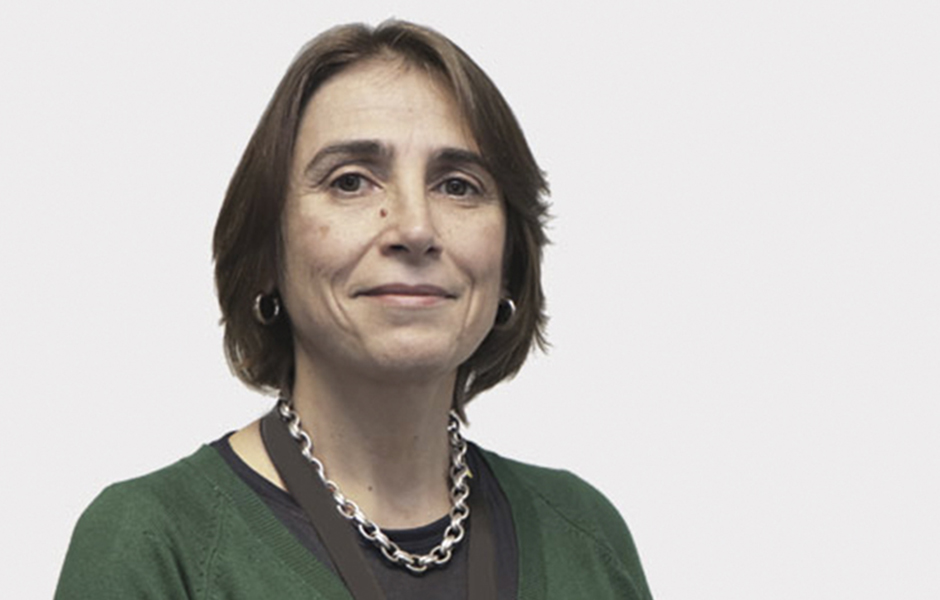Ana Reynolds is a researcher at CINTESIS, in the SPA – Signal Processing Applications research group, and an Assistant Professor at the Faculty of Medicine of the University of Porto (FMUP). She also co-coordinates the Gynecology and Obstetrics curricular unit of the 5th year of the Medicine Programme (MMED) and is the director of the optional subbect on Family Planning.
She was born in Ponte de Lima, where she lived until the age of eight. From eight to twelve she studied in Porto, where she would return to study for her medical degree at the Faculty of Medicine of the University of Porto. “I always wanted to be a doctor, ever since I was a little girl, even though I come from a family of literary people,” she says.
She graduated in Medicine from FMUP in 1995. During her internship, which she did at the CHUSJ, she became a mother: “I had two children during my internship. I showed up as a woman in labour on the first day of the specialty internship…, which is a curious coincidence. I went to the delivery room, not as an intern, but to give birth,” she recalls, laughing.
She completed her internship in 2005 and her PhD in Medicine from FMUP in 2012, with a thesis on the impact of intrapartum training using simulation techniques and technologies applied to health education. She took a break from 2012 to 2015 to travel the world. She went to Guinea-Bissau in 2014 for the first time as a volunteer under the Integrated Program for the Improvement of Maternal and Child Health (PIMI I), after seeing an advertisement on the website of the Portuguese Medical Association. She spent two months in that country, where she encountered a “harsh” reality.
“In 2012, the maternal mortality rate in Guinea-Bissau was around 1,000 deaths per 100,000 live births. Women did not go to health units for prenatal care or even to give birth, probably for family, cultural or religious reasons, but also because they could not afford it,” she believes.
From 2014 to 2015, she collaborated as CESIMED’s Pedagogical Coordinator in other maternal mortality reduction projects, specifically in Ukraine and Moldova, executed by the Swiss Tropical and Public Health Institute. In Guinea-Bissau, in PIMI, she has collaborated with the Instituto Marquês de Valle Flôr (IMVF), a Non-Governmental Organization for Development Cooperation (NGDO).
“It’s very important for people to get out of their comfort zone. These three years have been very rewarding for me. I had the opportunity to apply everything I have learned. I returned to Portugal in 2015 with even more questions and more projects,” she recalls.
In PIMI I, she was responsible for the development, methodological organization and teaching of long-term training in Obstetric and Neonatal Emergency Care (CONU), which uses simulation techniques/technologies applied to Medicine.
Following this experience, she published in the journal Acta Médica Portuguesa, in 2015, in co-authorship with João Bernardes, also a professor at FMUP and researcher at CINTESIS, the aforementioned training program developed to train health professionals who provide assistance during pregnancy, delivery and postpartum, designed to meet the objectives of the project.
She would return to Guinea-Bissau in the context of PIMI II – Integrated Program for the Reduction of Mother and Child Mortality and, recently, in PIMI III – Supporting Reproductive, Maternal, Newborn and Child Health towards a Universal Health Coverage System in Guinea-Bissau, he assumed the Clinical Coordination.
The return took place after the signing of a cooperation protocol between the FMUP and the IMVF, the NGOD responsible for implementing the IPMIP in the field. The goal continues to be to reduce mortality rates among mothers and children under the age of five by training professionals, providing and distributing drugs and consumables, and many other activities to ensure the provision of quality care to the target population at the national level (health centers and hospitals).
1 Year Ambition
At the research level, I am committed to implementing intrapartum education programs, telemedicine and distance learning, particularly with Guinea-Bissau.
10-Year Ambition
What motivates me most is to do something for women, reducing preventable maternal mortality. I have that will, that availability, and that opportunity, now at an institutional level, which makes me very happy.
Life beyond teaching and research
I use my free time to be with people, to talk, to walk, and to watch movies or attend cultural events that touch me in some way.

